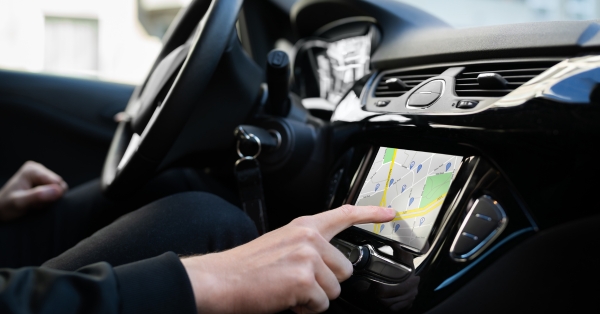Find the best car GPS tracker with this guide. Understand key features, installation tips, and how to choose a device that suits your tracking needs.
Selecting the right GPS tracker for your vehicle can significantly enhance its safety and security. With various options on the market, choosing the best GPS tracker for your car can be challenging. This guide will help you navigate through the essential features and considerations to ensure you select the GPS tracker that fits your needs.
Understanding Different Types of GPS Trackers
GPS trackers come in various forms, each offering different functionalities. Depending on your specific requirements, you might prefer one type over another. Here, we’ll break down the main types of GPS trackers available for cars:
Portable GPS Trackers
Portable GPS trackers are small, battery-operated devices that can be placed anywhere in your vehicle. They are easy to install and can be moved between different vehicles as needed. These trackers are ideal for temporary monitoring or for those who need flexibility.
Hardwired GPS Trackers
Hardwired GPS trackers are installed directly into your vehicle’s electrical system. These devices are more permanent and are often hidden within the car to prevent tampering. They provide continuous power from the vehicle’s battery, making them a reliable option for long-term tracking.
OBD-II GPS Trackers
OBD-II GPS trackers plug into the On-Board Diagnostics (OBD-II) port of your vehicle. They are easy to install, require no special tools, and can offer real-time tracking, vehicle diagnostics, and alerts. These trackers are best for those who want both tracking and vehicle health monitoring.
Key Features to Consider
When selecting a GPS Tracker for your car, it’s important to consider the features that will best meet your needs. Here are some of the most critical features to look for:
Real-Time Tracking
Real-time tracking allows you to monitor your vehicle’s location at any given moment. This feature is especially useful for keeping an eye on your vehicle’s whereabouts and ensuring that it’s safe.
Geo-Fencing
Geo-fencing lets you set virtual boundaries around specific areas. If your vehicle enters or exits these predefined zones, you’ll receive an alert. This feature is helpful for keeping track of where your car is and ensuring it doesn’t leave designated areas.
Speed Alerts
Speed alerts notify you if your vehicle exceeds a certain speed limit. This feature is particularly useful for monitoring the driving habits of teenage drivers or employees, ensuring they drive responsibly.
Benefits of Installing a Car GPS Tracker
Installing a GPS tracker in your car offers a range of benefits that go beyond simply knowing your vehicle’s location. Here are three key advantages:
- Enhanced Vehicle Security: A GPS tracker can significantly improve your vehicle’s security. If your car is stolen, the tracker provides real-time location data, helping law enforcement recover it quickly.
- Monitoring Driving Behavior: For parents with teenage drivers or business owners managing a fleet, a GPS tracker allows for the monitoring of driving behavior. You can track speed, braking patterns, and routes taken, ensuring safe and responsible driving.
- Emergency Assistance: Some GPS trackers come with features like crash detection and SOS buttons, which can be lifesavers in emergencies. These features provide peace of mind by ensuring help is available when needed.
Installation Considerations
Before purchasing a GPS tracker, consider how it will be installed. Some devices are simple plug-and-play options, while others may require professional installation.
- Ease of Installation: OBD-II trackers are the easiest to install, as they plug directly into your car’s diagnostic port. Portable trackers only need to be placed in the vehicle, and hardwired trackers will require a more involved installation process.
- Battery Life and Power Source: The power source of your GPS tracker is another crucial factor. Portable trackers rely on batteries, which need regular charging. Hardwired and OBD-II trackers draw power from the vehicle, offering uninterrupted service without the need for recharging.
How to Choose the Right GPS Tracker
Selecting the right GPS tracker depends on your specific needs and how you plan to use the device. If you need flexibility and the ability to move the tracker between vehicles, a portable tracker might be your best bet. For those looking for a more permanent solution with robust features, hardwired or OBD-II trackers are excellent choices.
Conclusion
A car GPS tracker is a valuable investment that provides peace of mind, enhances security, and helps you monitor driving behavior. By carefully considering the type of tracker, the features you need, and the installation process, you can find the perfect GPS tracker to meet your needs. Explore the options available and choose a GPS tracker that best fits your vehicle and lifestyle.







